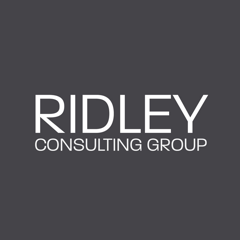Why Being Polite and Professional at Work Is a Start, But Not Enough
 ďIím an inclusive leader. Iím polite and professional to everyone.Ē I hear that a lot in my line of work. But here's the thing: being courteous doesn't equate to inclusivity. To explain what true inclusive leadership is, Iíd like to introduce the Inclusion Spectrum.
The Inclusion Spectrum
ďIím an inclusive leader. Iím polite and professional to everyone.Ē I hear that a lot in my line of work. But here's the thing: being courteous doesn't equate to inclusivity. To explain what true inclusive leadership is, Iíd like to introduce the Inclusion Spectrum.
The Inclusion Spectrum

Tolerance: Acknowledging Differences
At the bottom of the Inclusion Spectrum lies Tolerance. Tolerance is the willingness to put up with differences we may not agree with or like. It's the baseline where differences are acknowledged, albeit superficially. A tolerant workplace may appear polite and professional, but it often lacks genuine engagement with diversity. Picture a meeting where diverse perspectives are acknowledged but not fully considered. For example, when someone presents a dissenting viewpoint, and the response is simply, "Thanks for your input, but we're sticking with the original plan." While no one is overtly disrespectful, the lack of genuine consideration for diverse views leaves individuals feeling unheard and undervalued. Because diverse viewpoints are not fully explored, decisions are often prone to groupthink which prioritizes harmony and agreement over critical thinking, leading to suboptimal outcomes. Tolerance isnít bad, but inclusive leaders strive have people feel more than just tolerated in their presence.
Respect: Treating Diversity with Dignity
Moving up from tolerance on the Inclusion Spectrum is Respect. Respect means treating diversity with dignity, regardless of personal feelings. In a respectful workplace, diverse perspectives are appreciated even when they are unpopular, disliked, or challenge the status quo. For example, during a meeting, if someone presents a differing viewpoint, a respectful response might be, "Let's see how we can incorporate both perspectives into our plan." This approach recognizes the significance of diverse viewpoints and promotes an environment where everyone feels heard and respected. Even if the final decision remains unchanged, a respectful workplace strives to understand how diverse perspectives can contribute to the decision-making process.
Appreciation: Embracing Diversity as an Asset
True inclusion goes beyond mere respect; it requires genuine appreciation for diversity as a valuable asset. At the top of Inclusion Spectrum is Appreciation. This mindset necessitates stepping out of our comfort zones and being flexible in our approaches to ensure that everyone feels a sense of belonging and can reach their full potential. It means embracing ideas that may challenge our own and actively seeking out diverse viewpoints before making decisions, even if it inconveniences us.
In an appreciative workplace, diversity isn't just recognized; it's leveraged for innovation and growth. Hereís an example of appreciation in action Ė a client organization formed an employee-led Diversity, Equity, and Inclusion (DEI) council. Initially, only employees enthusiastic about DEI volunteered. However, the council leader recognized that this group didn't represent the full spectrum of opinions on DEI within the organization. Consequently, she actively sought out individuals who were skeptical of DEI, employing a different approach to engage them. Through one-on-one conversations to build trust and garner buy-in, these skeptical individuals eventually joined the council. As a result, decisions became more thoughtful and balanced, leading to better outcomes that allowed DEI initiatives to resonate with all employees and gain traction.
The Path to True Inclusion
To achieve true inclusion, leaders must go beyond being polite and professional and strive for genuine appreciation of differences as an asset to make us better. This entails actively seeking diverse perspectives and adopting a flexible approach to incorporate them into decision-making processes. As inclusive leaders, our challenge is to challenge ourselves to embrace diversity that we may not agree with or dislike as a source of strength versus a threat. By doing so, we foster workplaces where everyone feels valued and empowered to contribute. Higher engagement, more thoughtful decisions and better outcomes will be the reward.
Visit Ridley Consulting Group for more inclusion solutions to help you build a workplace culture of belonging: www.ridleyconsulltants.com
Get easy to implement tips for applying belonging best practices at work directly to your inbox by signing up for our newsletter here: https://ridleyconsultants.com/join/




 This post is locked to comments.
This post is locked to comments.
